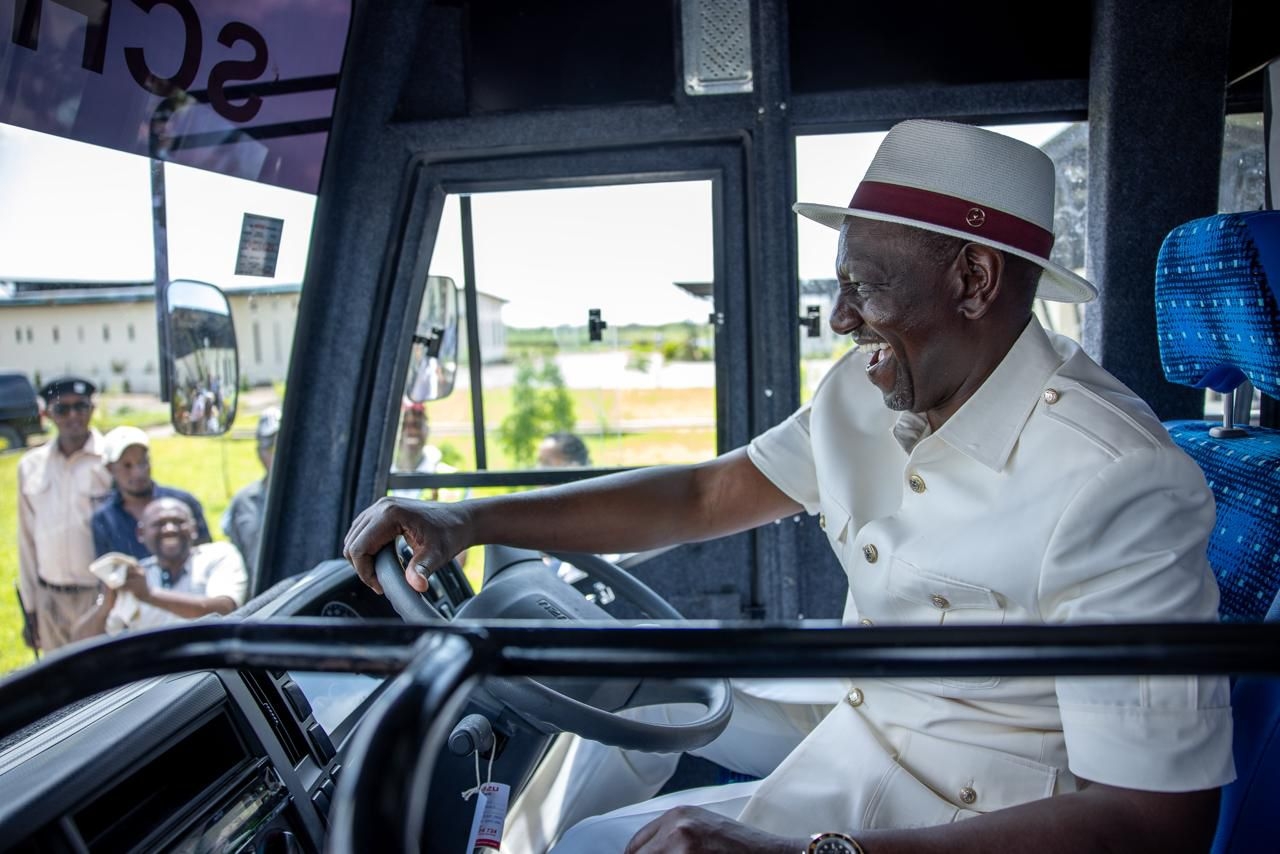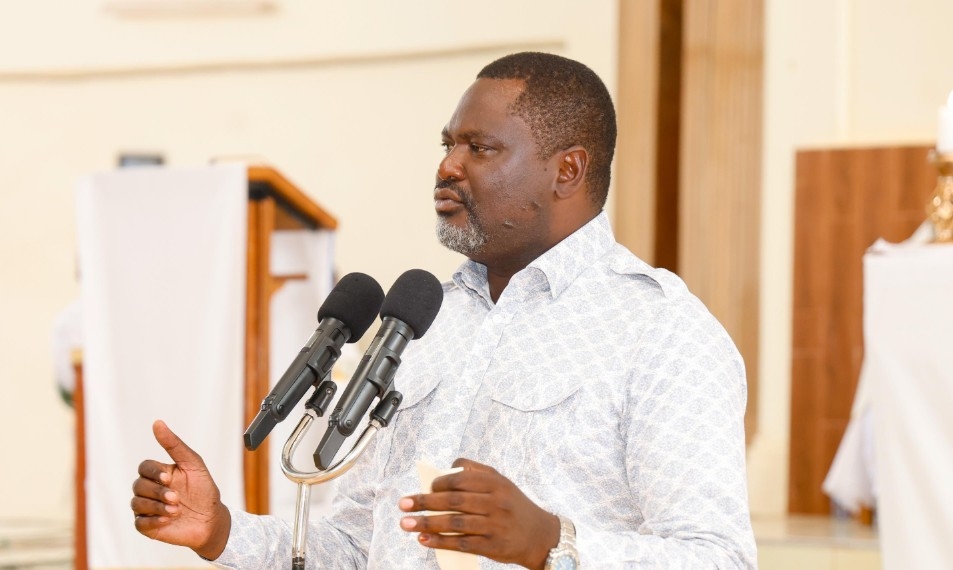For several years, political tensions among Ethiopia, Sudan and Egypt have been escalating over the near-complete Grand Ethiopian Renaissance Dam.
While Ethiopia says the dam project is key to its economic development and power generation, Egypt fears it will reduce its supplies of the Nile water, while Sudan is concerned about its safety and water flows through its dams and water stations.
The African Union and US are the recent actors who have attempted to broker a deal. Those attempts have been unsuccessful as actors in the conflict hold harline positions and play blame game.
Sudan's Foreign Minister Mariam Sadiq al-Mahdi on June 22 in a letter called on the UN Security Council to hold a session as soon as possible to discuss GERD and "its impact on the safety and security of millions of people" and to urge Ethiopia to stop the "unilateral" filling of the dam".
The Star's Eliud Kibii interviewed Ambassador Khaled Al-Abyad on the standoff.
What is Cairo’s position as things stand?
Egypt is committed to reaching a fair and balanced agreement on the GERD. This agreement should be based on preserving the rights and equities of the three riparian states of the Blue Nile. For Ethiopia, this agreement should guarantee its ability to generate hydropower from the dam expeditiously and sustainably.
For Egypt and Sudan, this agreement should minimize the adverse effects of the GERD through including mitigation measures to address the impacts of the filling and operation of the dam and any future periods of drought. Ethiopia effectively undermined the African Union-led process. It derailed the negotiations by refusing to negotiate on the operational rules of the GERD and by repeatedly proposing that the downstream states should accept partial agreements – as opposed to binding ones – that provide no protection for their rights and interests.
In a previous interview with the Star, Ethiopia’s Ambassador Meles Alem said they don’t need permission to fill the dam as it is designed in a way that facilitates simultaneous administration of filling and construction, “which is recognised under Article 5(b) of the Declaration of Principles (DoP). What is your reaction to this?
Throughout this process, Ethiopia continued to adopt a policy of unrelenting unilateralism. This was particularly manifest in Ethiopia’s decision to commence the filling of the GERD reservoir unilaterally by impounding 4.9 billion cubic meters (BCM) of water in July 2020. This constituted a material breach of the 2015 Declaration of Principles, which established a legal obligation on the three countries to agree on the rules governing the filling and operation of the GERD. Moreover, the uncoordinated manner in which the filling of the GERD commenced caused immediate effects on downstream communities in Sudan. Within days of the filling of the GERD, drinking water stations and hydropower facilities in Sudan as far downstream as the capital, Khartoum, experienced water shortages and shutdowns.
Egypt has previously sought Kenya’s intervention or support and from other African states. In April, Foreign Minister Shoukry embarked on an African tour with a special message from President Abdel Al-Sisi. What kind of intervention or support does Egypt expect from its allies on the continent?
Egypt has sought the support of its brothers and friends in the continent and beyond to help end the stalemate in this process. Kenya is well placed to play a constructive role as a member of the AU Peace and Security Council, a non-permanent member of UN Security Council, and a responsible and active member of the international community and pillar of stability in the region. Egypt depends on all its international partners to help revive and conclude the negotiations and bring on board the expertise required to achieve a breakthrough in the outstanding technical and legal issues.
Egypt and Sudan on one side and Ethiopia on the other have on different instances accused each other of derailing the dam talks. Interventions by the US and the AU have collapsed. What is hindering progress in the talks?
Egypt has consistently reaffirmed its commitment to the AU-led process. It has also argued that a decade of negotiations has demonstrated that trilateral negotiations alone will not be successful and that the three counties need the active assistance and engagement of our regional and international partners to ensure the success of our endeavours. Therefore, Egypt is of the view that it is essential that the negotiations are supported by highly-qualified experts who are capable of assisting the three countries in developing solutions to the complex technical, hydrological, and engineering aspects of this agreement.
Ethiopia, on the other hand, is seeking to maintain the façade of ongoing negotiations, while working to ensure that these talks do not yield any progress and do not lead to articulating solutions to the outstanding legal and technical issues. This would provide Ethiopia with the political cover of a negotiation process while it proceeds with the construction of the GERD and continues to fill and operate it unilaterally.
Ethiopia is essentially seeking to establish a hydrological carte blanche that allows it to fill and operate the GERD without taking into consideration its impact on downstream states or the applicable rules of conventional and customary international law, including the principle of equitable and reasonable utilisation, the obligation not to cause significant harm, and the principle of cooperation.
Sudan media outlets reported that Egypt and Sudan’s ministers of Foreign Affairs and Water agreed on joint efforts to bring Ethiopia to sign a biding agreement. How do they plan to do this?
If Ethiopia shows the requisite political will, an agreement on the GERD can be reached before the upcoming flood season. The international community should therefore impress upon Ethiopia the dangers of a unilateral filling and operation of the GERD and call upon it to reengage in good faith negotiations to expeditiously conclude an agreement.
UN Secretary General Antonio Guterres has offered to mediate, maybe through Article 99 of the UN charter. What chances does this option have in solving the standoff?
On June 29, 2020, the UN. Security Council held a session on the GERD. The convening of this session was unprecedented in the history of the Security Council, which had never before dedicated a session to deliberating on the political effects of a project being constructed on a transboundary river.
This reflects the international community’s recognition of the dangers inherent in a policy of unilateralism that seeks to exercise control over a transboundary river through a mega-project like the GERD. This is especially true for a region such as the Horn of Africa and the Nile Basin, which already suffers multiple crises and conflicts. By holding this session, the Security Council signaled its appreciation and recognition of the seriousness of this matter and its possible implications on peace and security in the region.
During this Security Council session, Egypt affirmed its long-standing position that it unwaveringly supports the right of upstream riparians in their efforts to achieve development and prosperity. It also highlighted the fact that it has never objected to the construction of waterworks by the Nile Basin states, but that it has always upheld the importance of compliance, by all parties, with the applicable rules of international law in the execution of these projects.
Egypt also reiterated its commitment to reaching a negotiated solution on the GERD and emphasised that its objective is to reach an agreement that is fair and balanced and that promotes greater cooperation and integration between the three riparian states of the Blue Nile. Egypt underlined, however, that it would not tolerate being in a position where its vital interests and livelihood of its citizens were threatened, and underscored that an Ethiopian policy of establishing unfettered control over the Blue Nile would only serve to further undermine regional peace and security.
President Al Sisi has threatened military action against Ethiopia to protect its interests. What will be the redline, and the prospects of going to war?
Egypt has demonstrated its unwavering commitment to reach a comprehensive legally binding agreement through the successive rounds of negotiations for more than a decade. We remain committed to achieving this objective by concluding the negotiations, but this will require a demonstration of genuine political will from all parties. It is also essential to note that Egypt is entirely dependent on the Nile and must secure its vital interests and, indeed, its very survival. It would be untenable for Egypt to allow for these vital interests to be taken hostage. Therefore, failure to reach an agreement on the filling and operation of the GERD threatens Egypt’s very survival and obligates it to take up its responsibility to safeguard its vital and existential interests.
What does an acceptable deal to Egypt look like if and when signed?
Egypt’s objective is to finalise the text of a comprehensive legally binding agreement on the filling and operation of the GERD that includes operational rules that establish measures to mitigate the long-term/post-filling effects of the dam (in particular measures that would protect Egypt against the effects of droughts and extreme droughts that may occur in the future), an agreement which is fair and balanced and which preserves the rights and equities of the three riparian states of the Blue Nile, thereby paving the way for this project to be a source of regional cooperation.






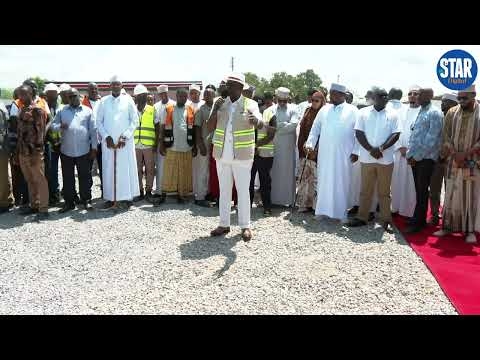

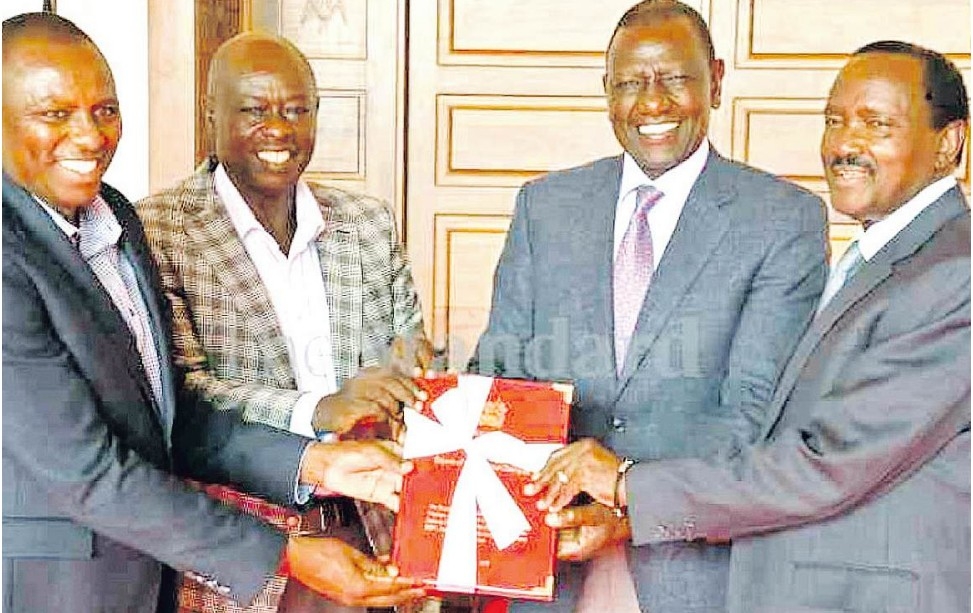
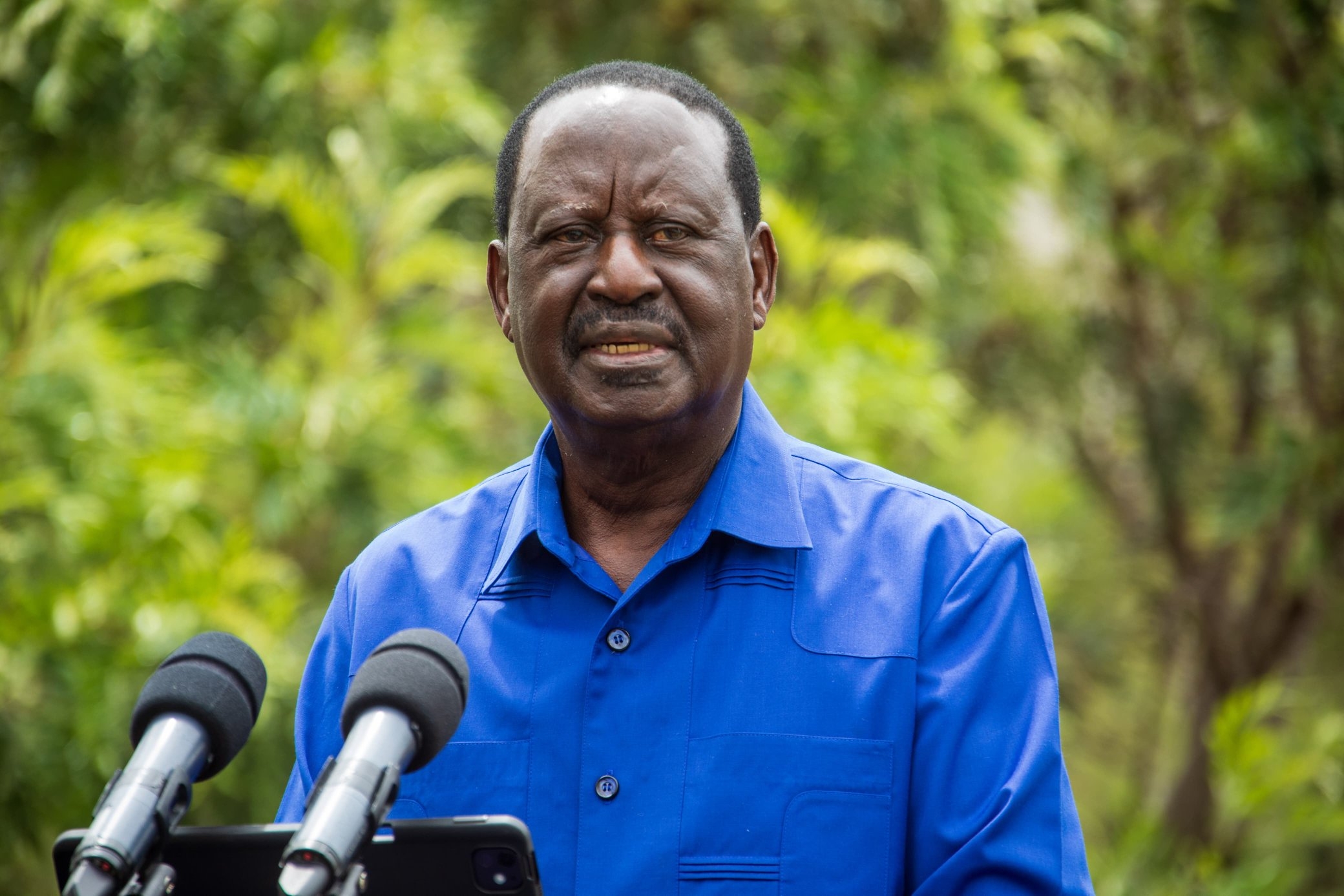
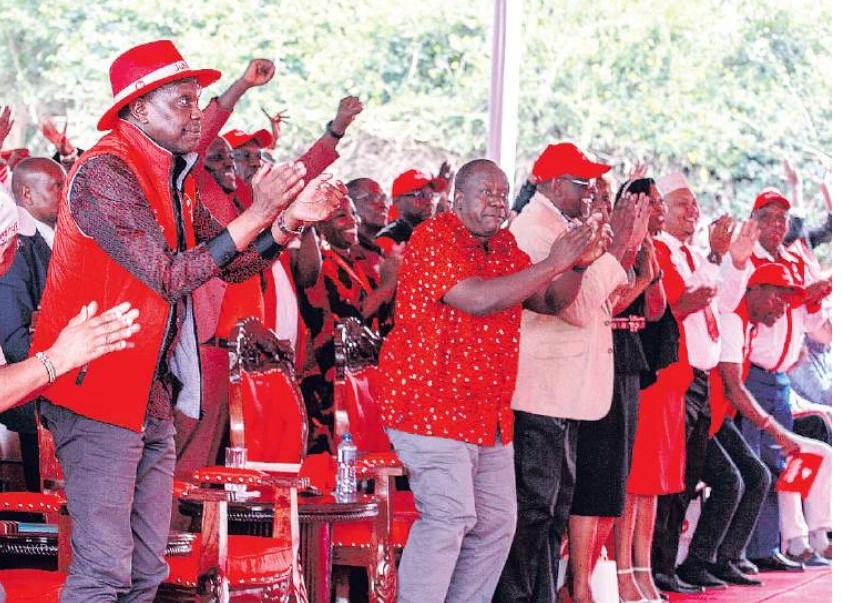
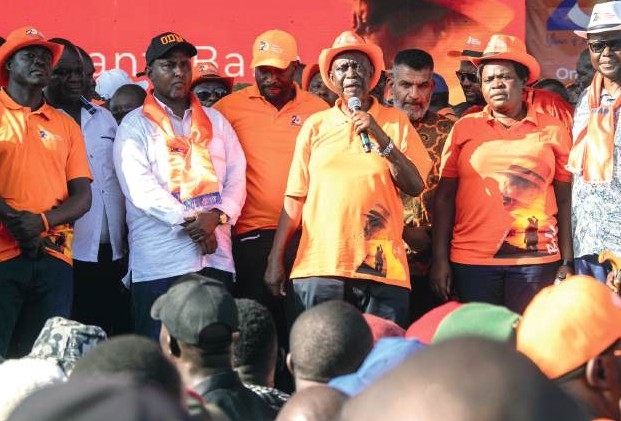
![[PHOTOS] Ruto present as NIS boss Noordin Haji's son weds](/_next/image?url=https%3A%2F%2Fcdn.radioafrica.digital%2Fimage%2F2025%2F11%2Ff8833a6a-7b6b-4e15-b378-8624f16917f0.jpg&w=3840&q=100)


